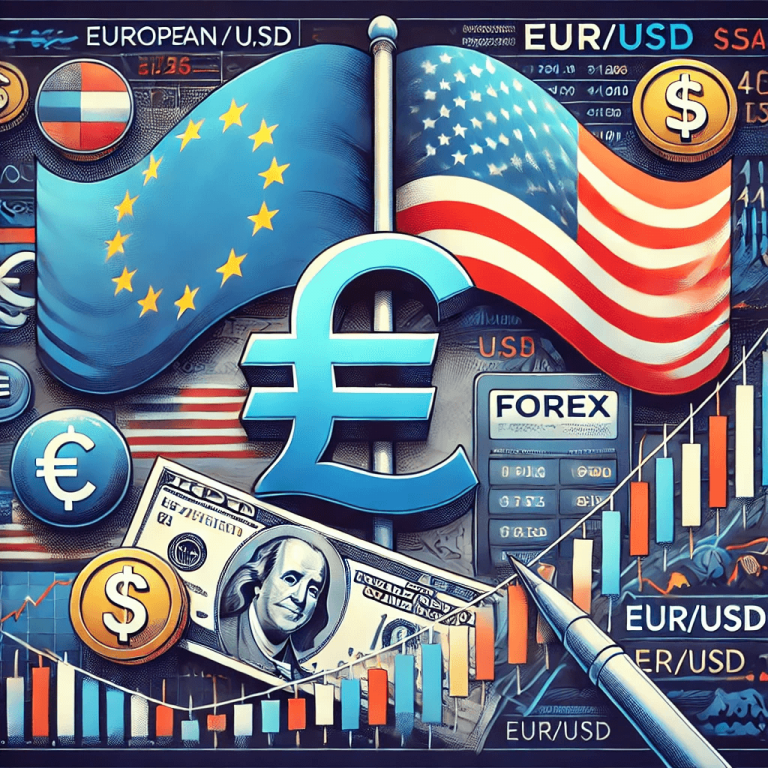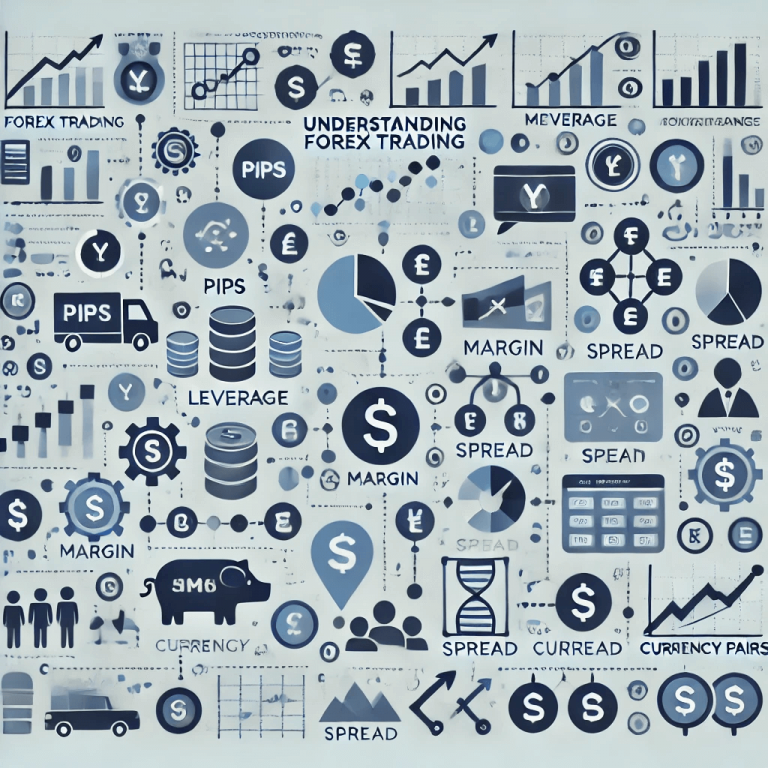Crude oil plays an extremely important role in the global economy. Its influence on financial markets and currency rates is enormous, which makes it one of the most closely monitored commodities in the world. Changes in oil prices can have far-reaching consequences, affecting various sectors of the economy, including other commodities, transportation, and monetary policy.
Table of Contents
- The Role of Crude Oil as a Key Commodity in the Global Economy
- Crude Oil as a Global Economic Barometer
- The Impact of Crude Oil on Other Commodities and Goods
- How Changes in Oil Prices Affect Currency Rates
- The Impact of Oil Prices on Central Bank Decisions
- The Effect of Oil Prices on the Leading Currency Markets
- Investment Strategies in the Context of Crude Oil
Key Information
- Crude oil forms the foundation of the global economy and significantly affects currency rates.
- Changes in oil prices translate into impacts on inflation, monetary policy, and countries’ trade balances.
- In oil-exporting countries, rising prices are associated with currency appreciation, while in oil-importing countries – with depreciation.
- Investors use technical analysis as well as futures contracts, ETFs, and other instruments to speculate in the oil market.
The Role of Crude Oil as a Key Commodity in the Global Economy
Crude oil is the backbone of many industries, such as energy, transportation, and the chemical industry. Oil prices affect production and transportation costs, which in turn impact overall economic performance, GDP growth, and inflation levels. Fluctuations in oil prices may prompt central banks to adjust monetary policy, for example by raising interest rates.
Crude Oil as a Global Economic Barometer
Crude oil is the foundation of many sectors, from transportation to the chemical industry. Its price serves as an indicator of the overall health of the global economy. High oil prices generally signal strong demand and economic growth, while a decline may indicate economic weakening. According to the latest data from the International Monetary Fund, some economies have experienced inflation increases of over 2.3% during periods of rising oil prices (Source: IMF, link).
The Impact of Crude Oil on Other Commodities and Goods
Oil prices have a significant influence on other commodities. An increase in oil prices typically leads to rising prices for natural gas, coal, and certain metals used in energy production. Higher oil prices also affect transportation costs, as fuel constitutes a major component of logistical expenditures.
This, in turn, raises the prices of many goods, including industrial raw materials and food products, ultimately leading to higher inflation. Increases in oil and related commodity prices can also trigger reactions in other markets, such as the currency market, through changes in production costs and international trade.
| Category | Impact of Rising Oil Prices | Impact of Falling Oil Prices |
|---|---|---|
| Oil-exporting Countries | Strengthen the local currency | Weaken the local currency |
| Oil-importing Countries | Currency depreciation due to higher import costs | Stronger currency due to lower costs |
How Changes in Oil Prices Affect Currency Rates
Fluctuations in oil prices have a significant impact on currency rates, particularly in countries that are major producers or importers of this commodity. Variations in oil prices affect the trade balance, inflation, and monetary policy decisions, which in turn influence the strength or weakness of currencies. As summarized by Dr. Michael Thompson, a commodities market expert, “Changes in oil prices are one of the key indicators of global economic instability.” (Source: Bloomberg, link)
These changes are noticeable both in oil-exporting countries and in those that import oil.
The Impact of Oil Prices on Central Bank Decisions
Oil prices also affect the decisions made by central banks. Changes in oil prices can influence inflation and the overall economy, forcing central banks to adjust monetary policy. For example, rising oil prices may lead to higher inflation, which in turn can prompt an increase in interest rates, as is the case in the USA (Federal Reserve) or in the Eurozone (European Central Bank). According to Eurostat, in some Eurozone countries inflation increased by an average of 1.8% during periods of sharp oil price fluctuations (Source: Eurostat, link).
The Effect of Oil Prices on the Leading Currency Markets (EUR/USD, GBP/USD, USD/JPY)
Crude oil prices have a significant impact on currency rates in global financial markets. Major currency pairs, such as EUR/USD, GBP/USD, or USD/JPY, react to changes in oil prices because oil holds enormous importance for the economies of countries involved in oil trade, as well as for global monetary and economic policies.
The relationship between oil and the currencies of oil-producing countries – in oil-exporting countries, such as Canada (CAD) or Russia (RUB), changes in oil prices have a direct impact on the value of their currencies. When oil prices rise, export revenues increase, leading to currency appreciation. Greater demand for oil generates a higher need for the local currency, thereby increasing its value. Conversely, a decline in oil prices weakens the currencies of these countries, as export volumes and related revenues drop.
The relationship between oil and the currencies of oil-importing countries – in nations that are major oil importers, such as Japan (JPY) or India (INR), an increase in oil prices usually leads to a depreciation of the local currency. Higher oil prices raise import costs, which worsens the balance of payments and may reduce demand for these currencies.

Investment Strategies in the Context of Crude Oil
Crude oil, as one of the most important commodities in the world, has a tremendous impact on financial markets, including currency rates. Investors can employ various investment strategies to take advantage of fluctuations in oil prices.
Technical Analysis and Oil Prices
Investors can use technical analysis to forecast changes in oil prices and their subsequent impact on currency rates. Employing technical indicators, such as moving averages, RSI, MACD, or support and resistance levels, helps assess market trends and determine potential entry and exit points. In the case of oil, technical analysis may also consider the volatility of oil prices in response to geopolitical events or changes in oil production, which enables more accurate forecasts of their effect on currency rates.
| Strategy | Description | Instruments |
|---|---|---|
| Technical Analysis | Forecasting price trends | RSI, MACD, moving averages |
| Futures Contracts | Direct exposure to price movements | Futures, options |
| Oil-related ETFs | Indirect investments | ETF funds |
Oil Trading and Its Impact on Investment Portfolios
In the Forex markets, investing in oil can be executed in various ways. Trading oil through futures contracts and oil-related ETFs gives investors access to fluctuating oil prices without the need to physically purchase the commodity. This strategy allows for direct exploitation of oil price movements to generate profits. It is also worth noting that changes in oil prices can affect the currencies of oil-producing countries, which provides opportunities for speculation in currency pairs such as CAD/USD or RUB/USD.
Portfolio Diversification: Incorporating Crude Oil
Adding crude oil to an investment portfolio can be an effective diversification strategy, especially in the context of volatile currency markets. Crude oil is often regarded as a hedging asset, as its prices are linked to numerous global economic and geopolitical factors. Investing in oil or oil-related assets (e.g., ETFs, commodities) can help protect a portfolio against currency market fluctuations, particularly during periods of economic uncertainty.

Conclusion
In conclusion, crude oil prices have a significant impact on financial markets, including currency rates and investment strategies. Changes in oil prices influence the currencies of both oil-exporting and oil-importing countries, creating opportunities for speculation in currency pairs. Investors who employ technical analysis can effectively forecast market reactions to oil price fluctuations, and trading oil – whether through futures contracts or ETFs – can be a crucial element of an investment portfolio. Diversifying a portfolio to include oil-related assets may serve as a hedge against currency market volatility, offering investors additional opportunities in the dynamic world of finance.




